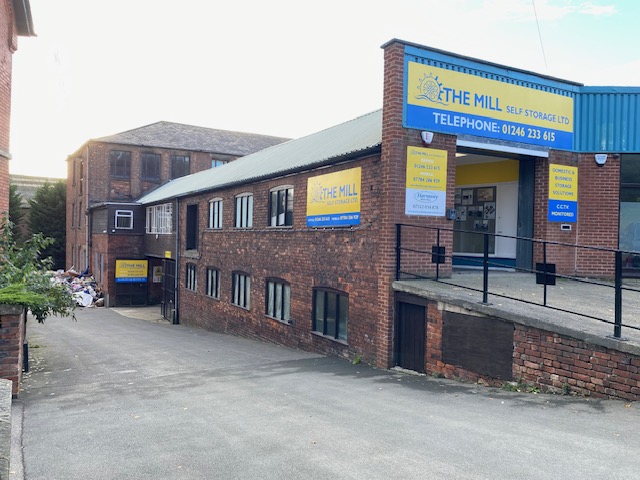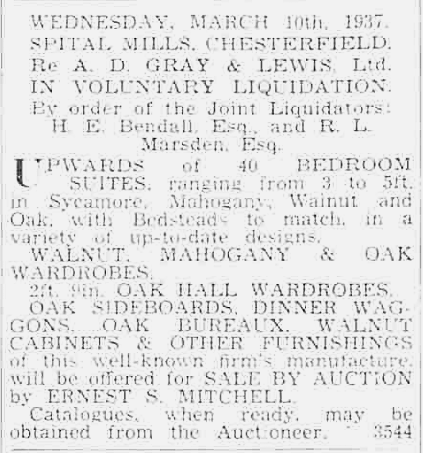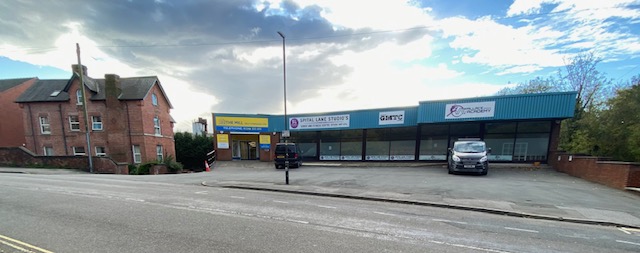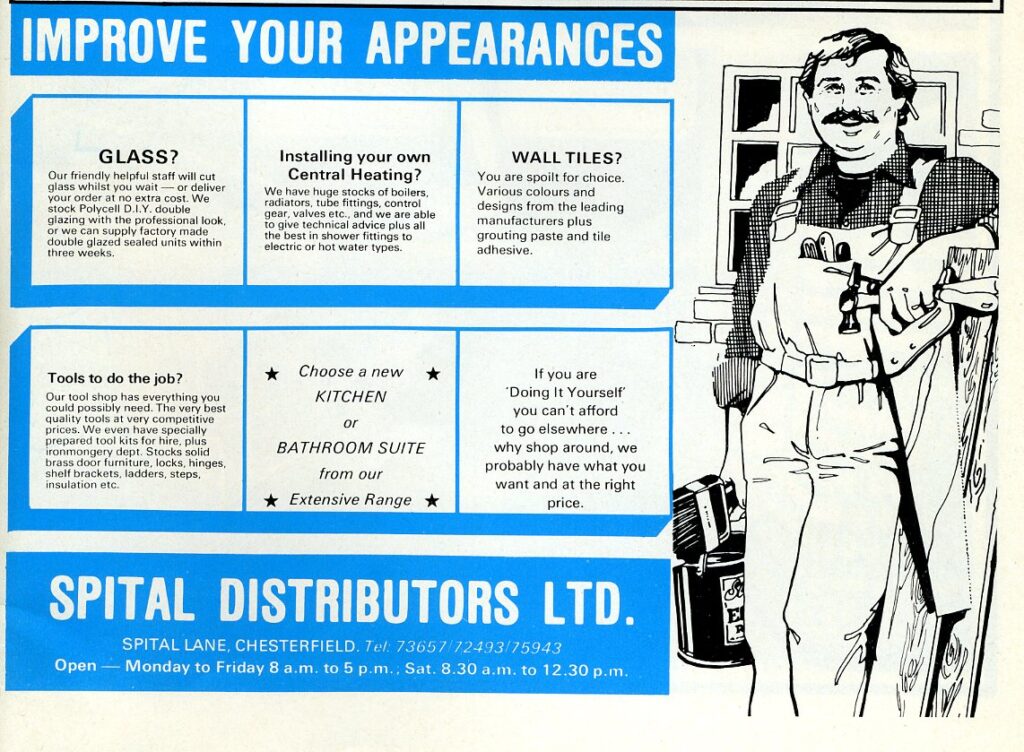This is the final part of our history of Spital Mills, Hasland. It covers the period after tobacco manufacturing ceased at the mill, bringing the story right up-to-date.


After Mason’s tobacco manufacturing business closed in the early years of the 20th century, Spital Mills were taken over by A.D. Gray, who with a partner, established a cabinet making business there, trading as A.D. Gray & Lewis Ltd. In 1916 the company bought the freehold of the works.
Although the company was said in 1935 to be thriving, it went into voluntary liquidation early in 1937, when 40 bedroom suites were sold by auction. Later that year there was a two-day catalogue sale of the premises, the whole of the woodworking machinery, a gas engine, two electric motors, a large number of tools, 27,000 ft of oak and other plain timber and 40,000 ft of walnut, mahogany, oak, sycamore and other veneers.
Spital Mills were acquired in 1937 by the Woodseats Joinery Company, which in 1949 was purchased by Frederick Wale. He had, in 1912, served an apprenticeship at Gray & Lewis.
In the 1950s the business moved away from joinery to the manufacture and sale of tiled fireplaces and was renamed the Spital Tile Surround Company. The name was shortened to Spital Tile Co. Ltd when the business began to supply ceramic wall tiles.
Frederick Wale died in 1964, when the company passed to his son Ian. In his hands, the business diversified into the supply of plumbing and heating materials, ironmongery and tools to the trade, while still selling tiles.

In 1981 the company built a 5,500 sq. ft showroom on Spital Lane, in front of the mill, to promote the retail sale of bathrooms, kitchens and other products. The sale of gas fires and fireplaces was resumed in the 1990s, when Ian Wale was joined as directors by his daughters Victoria and Elizabeth.

The business closed in 2019. The former mill building was taken over by a storage company and the show room became a gym and dance centre. Both continue to this day.
Between 1954 and 1963 part of Spital Mills were occupied by the Midland Light Pattern Co., which moved to Chesterfield from Annesley Woodhouse (Notts.) in the former year, and from Spital Mills to a new factory at Calow in the latter year.
The mill erected by Holmes & Smith back in the 1840s, today survives substantially unaltered. The main building is of brick, of three-storeys beneath a hipped slate roof. An extension at first-floor level over part of the yard provided additional rooms, which in the 1930s were used as offices. There were other outbuildings adjoining and originally a boiler house with tall chimney and engine-house at one end of the mill, which had been demolished by 1937.
The mill stood within easy reach of the Midland Railway goods yard and later that of the Great Central Railway, but was never rail connected.
Our other parts of the story of Spital Mills can be found as below:
This text is a slightly edited version of that appearing in our ‘History of Hasland …’ book, which is now of print, but you can find copies in Chesterfield Local Studies Library. All sources are fully referenced in our book.
On 13 January 2024 we amended the original post to include a 1981 advertisement for Spital Distributors.
